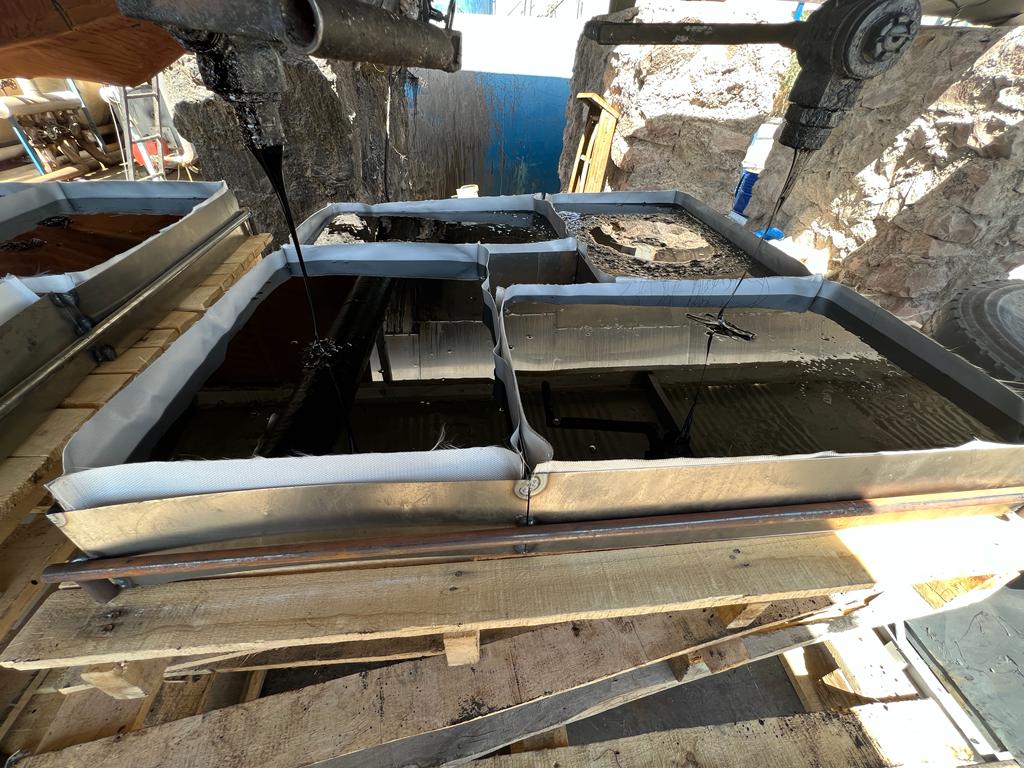Description of Blown Asphalt 85/35
Oxidized Bitumen 85/35 is a semi-solid grade petroleum bitumen and also a polycyclic aromatic hydrocarbon. The process of manufacturing involves the blowing of hot air over base bitumen of grade 60/70, and it leads to oxidation. The oxidation makes the bitumen harder, water-resistant, and also more adhesive in nature.
The “85/35” specification refers to: The first number (85) is the softening point, which is the temperature at which the bitumen starts to become soft.
The second number (35) is the penetration grade, given in tenths of a millimeter, and indicates how deeply a standard needle will penetrate the bitumen under certain conditions.
Alternative Names
Oxidized Bitumen 85/35 is also known by several other names, including: Blown Asphalt 85/35 ,Blown Bitumen 85/35 , Oxidizing Bitumen 85/35 ,Oxidized Asphalt 85/35 ,Air Blown Asphalt 85/35 ,Air-Rectified Bitumen 85/35
Applications of Oxidized Bitumen 85/35
This bitumen grade is widely utilized in the production of bitumen coatings, roofing, insulations, and sheets of bitumen membrane. It also finds applications in chemical industries, fuel, paints, varnishes, lacquers, paper-pulp-board, and textile processing. This bitumen grade is used in civil engineering applications of road construction, pavement, sealing and repairing cracks, roofing, and other building works.
Furthermore, Oxidized Bitumen 85/35 is utilized as a building sealant and insulating material, an adhesive, and as a construction material additive. Furthermore, it is applied in dust-binding and coating, and is also employed as an impregnating and insulating agent in rubber and plastic product manufacturing.
uses
- Road paving and roofing
- Asphalt-based protective paints from corrosion of metals
- Public infrastructure coatings
- Electrical laminates adhesives
- Base product for artificial grass
- Pipe coating
- Portland cement pavements
- Hydraulic applications
- Paint manufacturing
- Advantages of Oxidized Bitumen 85/35
- Easy application
- Versatile by different applications
- Durable and resistant to wear
- Water resistant
- Lower penetration grade for increased hardness
- Higher softening point for improved performance at elevated temperatures
Handling and Storage Recommendations
Heating bitumen in packages is a critical process in most applications. Bitumen is typically melted and heated in on-site boilers. There should be proper control of the heating process to maintain product quality as well as ensure health and safety.
230°C is the highest safe temperature at which bitumen may be handled and must not be exceeded. Owing to the low thermal conductivity of bitumen, local overheating can result from improper heating, with subsequent thermal cracking and the evolution of flammable vapors.
To allow adequate heating, bitumen has to be broken up into small pieces before placing it in the boiler, with exposed surface area maximized. Avoid reheating cold bitumen, as this contributes to possible hot spots and vapor pockets. Temperature-measuring equipment should be placed carefully as readings can significantly vary based on where they are located in relation to the heat source.
Health and Safety Precautions
The following should be noted by employees:
Ensure proper ventilation when heating bitumen to avoid inhaling poisonous fumes.
Use protective clothing, including heat-resistant gloves, shoes, long sleeves, and goggles.
Keep bitumen out of fire or sparks and have fire extinguishing equipment handy.
Packaging and Load Capacity
Oxidized Bitumen 85/35 is packaged in the following packagings:
25 kg Polypropylene (PP) sacks, palletized and shrink-wrapped (920 bags for 20ft container, net weight 23 tons)
25 kg carton boxes, palletized and shrink-wrapped (880 boxes per 20ft container, net weight 22 tons)
Meltable polyamide bags (20 & 25 kg)
Carton boxes (20, 25 & 40 kg)
Kraft bags (20, 25 & 40 kg)
Blocks (20, 25 & 40 kg)
Drums (20 & 25 kg)
Specification of Blown Asphalt 85/35
| Bitumen 85/35 | Test method | Unit | Specification |
|---|---|---|---|
| Specific gravity @25/25 °C | ASTM D70 | (Kg/m3) | 1.05 approx. |
| Penetration @25 °C | ASTM D5 | mm/10 | 30/40 |
| Softening point °C | ASTM D36 | °C | 80/90 |
| Ductility @25 °C | ASTM D113 | Cm | 1.5min |
| Loss on heating (wt) % | ASTM D6 | Wt. % | 0.2 max |
| Flash point °C | ASTM D92 | °C | 250 min |
| Solubility is CS2 (wt) % | ASTM D4 | Wt. % | 99.5 max |
| Spot test | A.A.S.H.T.O 102 | — | Negative |


